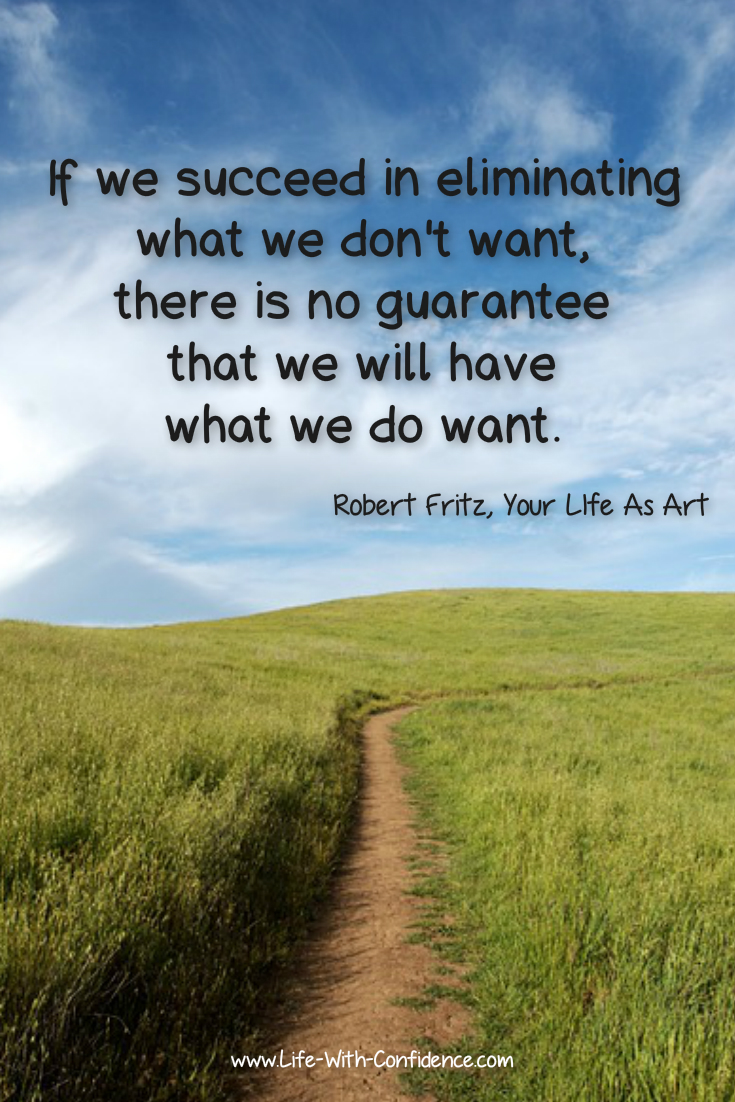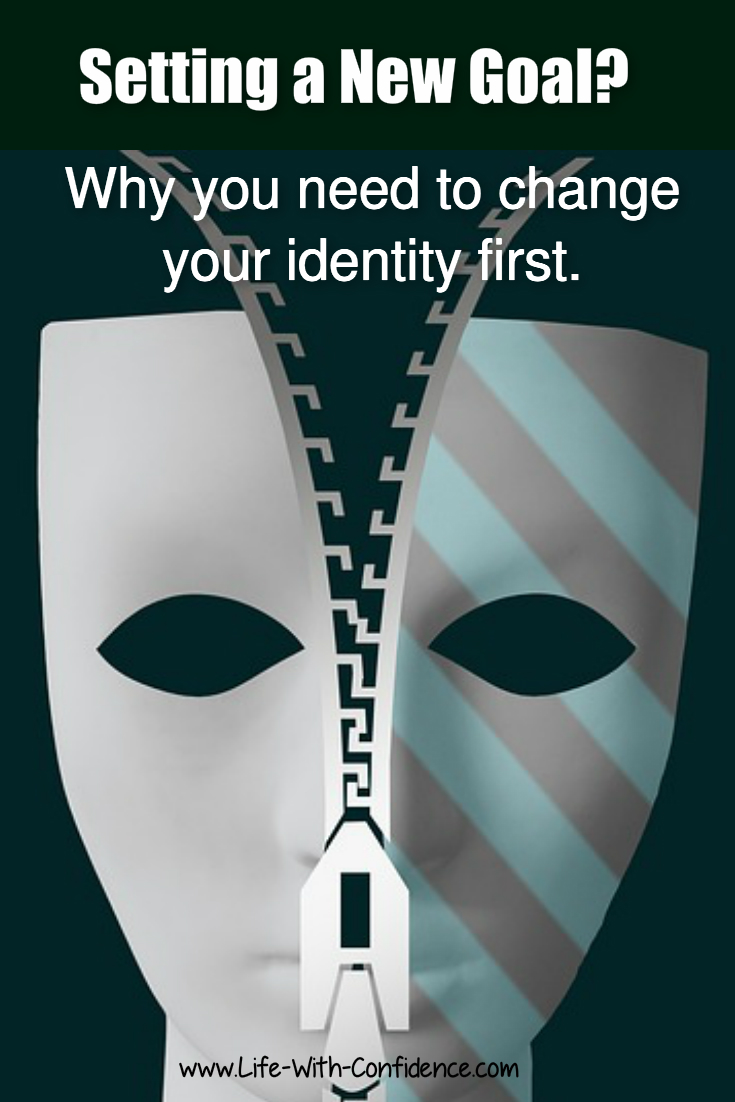6 Questions To Make New Habits Stick
Catherine Pratt
www.Life-With-Confidence.com

Starting good habits isn't usually a problem. Making them stick can be more challenging. Why is that?
Do you find that you start out strong with your goals and then end up sliding back into your old habits after only a few weeks?
It's enough to make you wonder if you’re self sabotaging yourself or if you’re addicted to suffering or if you’re just a failure at everything you try. What’s going on? Why can’t you make new habits stick?
Let’s take a closer look at this problem using the example of trying to lose weight.
Losing weight and getting into better shape is something many attempt but often end up giving up because they don’t seem to be able to incorporate the needed changes into their daily routine. A great example is trying to add some sort of exercise program into your life. You may be able to do it for a month or so but after that you just lose all motivation and go back to your previous habits. Instead of getting up early to do your exercise, you’re back to punching the snooze button until the very last second. You may still have the desire to exercise but you just don’t seem to be able to convince yourself to keep doing it.
So, what’s really going on? And, what’s the secret to breaking through this mental block?
You’ll have a much greater chance of making any new habit stick if you ask yourself the following 6 questions first:
1. What Is Your Goal?
First, you need to ask yourself, what exactly is your goal and what do you want to get out of making this change?
You’ll be making a positive life change and you need to be clear with yourself on why you want to do this.
If you’re wishy washy about it then it’s easier to lose focus and get distracted by other things. For example, if you just said, “I want to be in better shape,” it’s not that clear. Being in better shape could mean a lot of things. It could mean that you're going to start running 3 times per week. Or it could simply mean that you’re going to walk to work instead of taking the bus. Or maybe you're giving up your lattes in the morning.
If you're not definite on what you want to achieve, then it’s very easy to lose focus with your goal and not know how to move forwards.
Being clear on what your goal is also means that you'll be able to tell when you've been successful. You know you're successful when you're able to run those two miles, three times per week that you planned. Or, you can do that step class twice per week without being completely exhausted according to your original goal.
A hazard you'll run into if you're not clear is that your thoughts will justify not following through on your new habit. For example, if you were offered a donut, you'll start thinking thoughts like, “Being in better shape means more exercise so I can still eat whatever I want. I'll work it off later,” even though you already know you won't.
You need to be crystal clear so it’s easy to know what you need to do in order to create your new habit. You'll be able to ask yourself, "Is this moving me towards my new habit or away?" and just know instantly the right decision to make.
2. Are You Trying To Create Something Or Get Rid Of Something?
Take a look at your goal and see if you’re trying to create something or eliminate something from your life.
If your goal is to lose 10 pounds, are you creating or eliminating? Eliminating, right? You’re trying to get rid of something; the weight. Goals that try to eliminate or get rid of something often end up going wrong very quickly.
Trying to eliminate something is really focusing on something you don’t want. You don’t want to be fat, you don’t want to have to buy new clothes, you don’t want people to think you’re ugly. All don’t wants. Trying to succeed by focusing on what you don’t want usually ends up in frustration.
So, turn it around to be something you want to create or achieve. For example, instead of deciding to lose 10 pounds, make your new habit that you want to achieve a healthy, toned body within your healthy body weight range. You'll still have to decide what a healthy body means to you (perhaps not eating junk food, exercising so many times per week, etc.) but you'll now be focused on creating something.
Creating connects much more powerfully within yourself and becomes a part of you.
Trying to get rid of something gives your power to whatever you’re trying to get rid of. How you feel about yourself will be affected by that thing you want gone. For example, you’ll feel frustrated and angry at yourself if you work out 10 days in a row and you still haven’t lost an ounce. You’ll be much more likely at this point to give up. You’ve given away your power to the weight. That’s what you’re focused on. The weight is in control of how you feel about yourself.
On the other hand, if you were focused on creating a healthy, toned body, you would start noticing things like you can now do 3 flights of stairs without getting winded whereas previously one flight overwhelmed you. You’ll notice the good things and not the bad. You'll also continue to think of more ways you could create your new habit.
It's one of those mental shifts that you'll be absolutely amazed at what a difference it makes to whether you can make new habits stick or not.
Trying to get rid of something also has an impatience effect on your mind. When you make a decision to get rid of something, you want it gone instantly. Whether that’s weight or clutter, you’ve made the decision you don’t want it anymore so you want it gone within the next hour. You set yourself up for feeling very frustrated because losing weight will take persistent effort.
If you’ve made the decision that you want to create a toned body, it’s a different mindset. You realize that it’s a process and that it will take time. You’re more willing to work to create what you want. It also makes you realize that this is going to be a permanent life change rather than something you only do until you lose the desired weight.
And, here's one more great reason to create rather than eliminate.
"If we succeed in eliminating what we don't want, there is no guarantee that we will have what we do want." - Robert Fritz, Your Life As Art
3. Why Are You Really Doing This?
So, let’s say you’ve decided that the habit you want to incorporate is exercising 3 times per week in order to create that new, sexy, toned body.
Remind yourself again:
- why do you really want to do this?
- what will you achieve once you’ve done this?
- what’s really the driving force behind this?
For example, is it the slimmer body that will mean so much to you or is it how much more energy you'll have? (Tip: make sure you're doing it for you and not to please someone else)
- you’re probably going to be disrupting your normal routine to add this in to your life, are you willing to do that?
By asking questions like this, you again become very clear on
what your goal is and why you want to do it. If you think back to your
original goal of wanting to lose 10 pounds, you may come to the
realization that losing weight really isn't your goal at all. That's
just a tiny part of your real objective.
You'll see that the weight is actually just a benefit of
achieving what you really want. You want a body you feel comfortable in
and are proud of, you want to look better in your clothes, you want to
feel more energetic, or you might just want to be able to keep up with
your 3 year old son who's now running faster than the speed of light. If
you couldn't lose an ounce yet you looked much slimmer and trimmer in
your clothes and felt energized, would you be happy? The actual number
on your bathroom scale probably wouldn't matter anymore because you'd be
busy enjoying your new healthy body.
So, take the time to really figure out what do you really want to accomplish with this goal? You should be able to visualize what it is that you really want to obtain from adding this habit to your life. It's also important to have your goals for the right reason. You don't want to be doing something because you think you should or because you think you'll get something in return. For example, you might think if you lose weight, people will like you more. The other reason for exploring fully your reasons behind this positive life change is that it'll allow you to integrate it into your life much more easily. You'll be able to resist temptation more because you’ll remember why you really want this in your life.
4. How Are You Going To Incorporate This New Habit Into Your Life?
It's important to look at the logistics of how you're planning to accomplish this goal. For example, are you going to devote an hour a day to pursuing it? Is this realistic and will you be able to keep it up? You need to be able to see how you're going to fit this new habit into your schedule so you can make sure it's going to work for you. By thinking it through, you'll also be able to spot any potential obstacles and have a plan on how to work through them. Also, by thinking through the entire process of how and when you're going to fit it into your schedule adds a level of commitment to your thinking. It's not just something vague you want to do. You now have a plan and can schedule it to become an automatic part of your daily life. It'll become a habit that you just naturally do at certain times.
5. What's Working? What's Not?
Most likely this isn’t the first time you’ve attempted this goal. I find it can take me several attempts before I finally get a new habit to stick. So, when you tried before, what was working, what wasn’t? You may find that you just need to make a few adjustments.
One of the first things to consider is that it’s important to be doing an activity that you like. If you hate doing it you’re going to stop when you hit the first obstacle or the first temptation to not do it and it'll be tough to start up again. Also, if you don’t like doing it, that’s all you’ll think about when you try to motivate yourself to do it. It won’t seem worth it to you to keep spending the time, energy, and possibly money for something you don't even like. The goal will suddenly seem not so important anymore. So, make sure you find an activity you do enjoy.
It's also important to make sure that the activity is working with you and not against you. You want to make sure that it fits into your schedule and isn't actually causing you more problems. For example, if you decided to exercise in the afternoon but that's the time you really have to pick up your kids from school, most likely this isn't going to work for you. It will cause you more stress instead of relieving it.
Also, work with your natural energy levels. If you have more energy in the morning, exercising in the morning may work better than trying to add it in at night. Maybe the problem you've had before is that you didn't really like how you incorporated the exercise you picked. Maybe doing a workout at the gym doesn't really interest you but following a dvd in your pajamas at home is more to your liking and comfort level. Try looking at what you like about the exercise and what you don't like.
You might find that by changing some small aspect means that it suddenly clicks with you. Or maybe you liked the exercise but just don't like doing it every day. You might just need more variety and routine. Or maybe you’d be more encouraged if you worked out with a group instead of by yourself at home. That's why it's important to figure out what works and what doesn't.
It can take time to find the perfect exercise that works for you. There's nothing wrong with trying out a whole bunch of different types of activities in order to find the one that's right for you. Keep exploring all your options until you find what works perfectly for you.
If you haven't been successful in the past, don't think of it as having failed in the past. You've just been fine tuning the whole process. You now know what works and what doesn't and you're much closer to being successful for having gone through the previous experiences.
6. Have You Made This New Habit A Priority?
If a good TV show came on, would you choose to watch the show or work on your goal? Whatever you spend your time doing, is a priority for you. If you choose TV over your exercise, you have mentally stated that TV is a higher priority.
There's a definite mental shift that takes place when you choose to make your goal a priority instead of something that would just be “nice” to achieve someday. So, how committed are you?
The other thing to consider is would you place it higher than your other obligations? It’s very easy to think to yourself that you'll do it after everything else is done and when you have time. The problem is that the time will never come. So, you need to make that commitment to yourself that this is important and you're going to do this. You need to write it in your schedule and recognize that it's that important. By doing this, you'll also have the mindset that if it doesn't work at first, you'll figure out what adjustments you need to make. You'll be absolutely committed that this is an area of your life where you're going to be successful. You need to say to yourself that you are important and this is something you're going to achieve for yourself.
One more thing to consider when making this new habit a priority is to make sure you're not taking on too much at once. It's tempting to make the decision that you're going to completely overhaul your life. You're going to get that toned body, you're going to learn a new language, you're going to volunteer at your local food bank, and on and on. The thought of becoming a brand new person sounds exciting but change itself can be a very tiring activity. So, make sure you don't try to change too much at once. When you're making substantial changes in your life, it can take a lot of mental energy to stay focused on that goal. If your willpower is worn out by your determination not to eat any more junk food during the day, you might not have any willpower left to go for that 30 minute walk after dinner. Adding in your new lifestyle changes gradually will make it much easier for your new habits to stick.
Make New Habit Stick Summary
So, now you should see that making new habits stick really
isn't that hard at all. It's just a matter of being clear on what you
want to achieve, know why you want to do it, and make sure that you're
creating rather than eliminating. Then, add it to your schedule, work
with it until it works perfectly with your schedule and lifestyle and
then enjoy it. The last thing is to remember to make yourself the
priority. You deserve to achieve your goals and this time, nothing is
going to stop you.
You truly can make any new habit stick simply by going through these 6 questions first.
Back to top
Related Articles
Setting A New Goal? In order to be successful with your new goal, it's important that you also change your identity. Here's how to do that...
If you understand your distractions then you'll be able to increase your focus which leads to being able to achieve your goals far faster and easier. Here's why it's so hard to say No.



